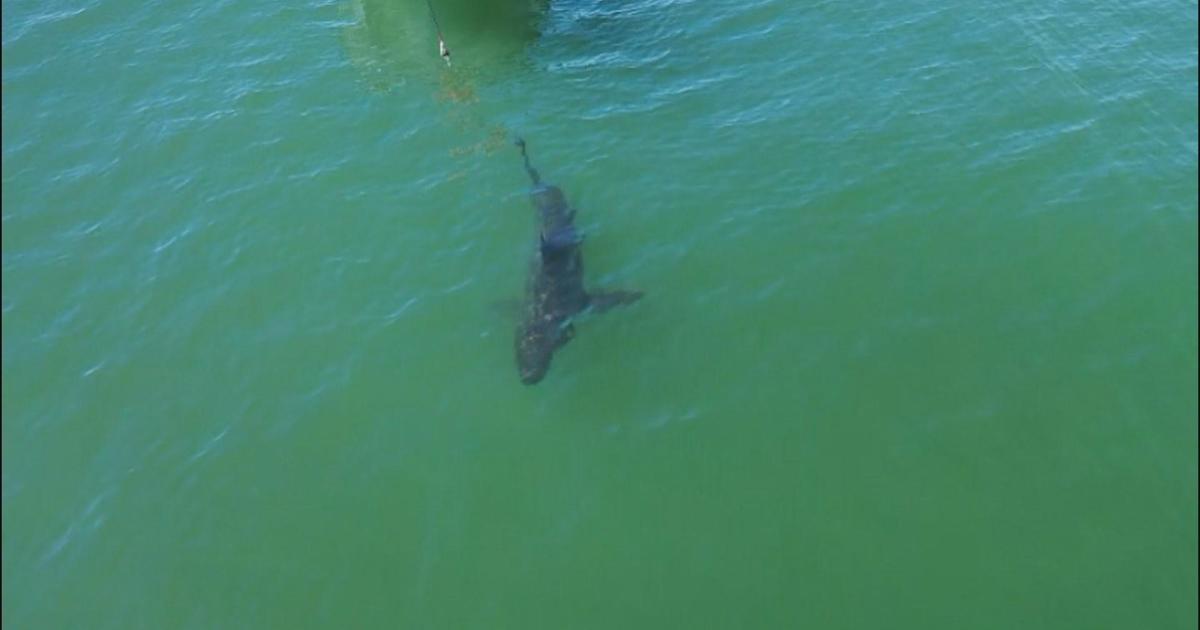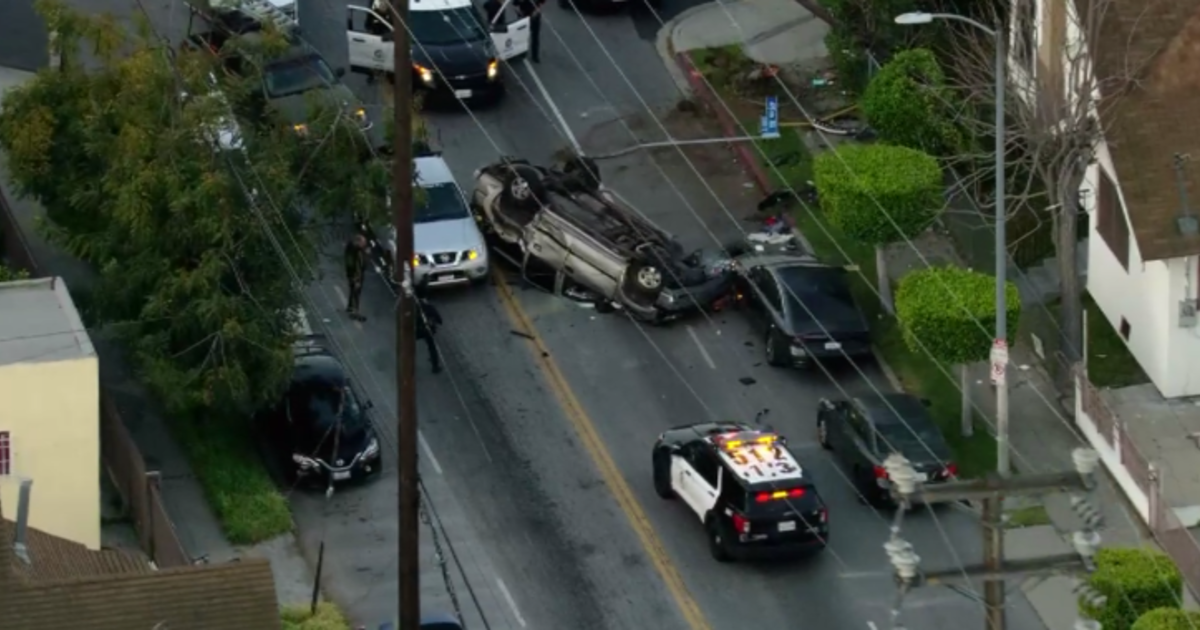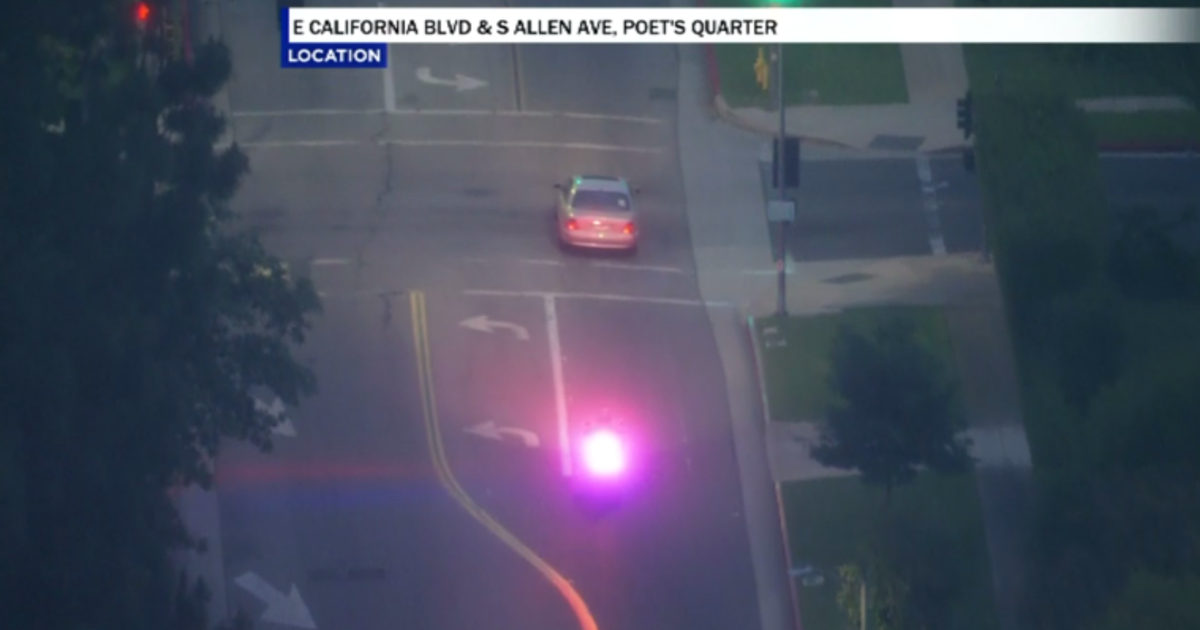California Bill Seeks To Put Warning Label On Soda, Sugary Drinks
CULVER CITY (CBSLA.com/AP) — California may become the first state in the country to require warning labels on soda.
Activists say sugary soft drinks can contribute to diabetes and obesity but soda manufacturers strongly disagree, and promise to see this battle to the end.
"Soda and other sugary drinks are the number-one source of added sugar in the American diet," according to Dr. Harold Goldstein, of the California Center for Public Health Advocacy.
The average American reportedly consumes 45 gallons of soft drinks a year.
SB1000 would require the warning on the front of all beverage containers with added sweeteners that have 75 or more calories in every 12 ounces. The label would read: "STATE OF CALIFORNIA SAFETY WARNING: Drinking beverages with added sugar(s) contributes to obesity, diabetes, and tooth decay."
Democratic Sen. William Monning, who proposed the bill, said there is overwhelming research showing the link between sugary drinks and those health problems, adding that the wording was developed by a national panel of nutrition and public health experts. The bill has the backing of the California Medical Association and the California Center for Public Health Advocacy.
"The goal of the warning quite simply is to give consumers the right to know what are well-established medical impacts from consuming these beverages," Monning, from Carmel, said. "We're talking about a public health epidemic that will take more lives than gun violence."
The senator says the consumption of soda and other sugary drinks has taken an unhealthy turn since he was a child.
"From it being a treat when I was a child, that maybe on a weekend we'd get a 10-ounce bottle with a hamburger, now it's liter bottles sold at a less expensive price than water, going into the refrigerator breakfast, lunch and dinner," Monning said.
CalBev, the California arm of the Washington, D.C.-based American Beverage Association, noted that the industry already posts calorie counts on the front of many beverage containers as part of its "Clear on Calories" campaign that began in 2010. Also, drink bottles already have detailed ingredient lists and nutritional information.
"We agree that obesity is a serious and complex issue," the company said in a statement. "However, it is misleading to to suggest that soft drink consumption is uniquely responsible for weigh gain. In fact, only four percent of calories in the average American diet are derived directly from soda."
The group would not put a price tag on complying with the proposed legislation but said the measure would increase the cost of doing business in California.
The medical groups backing Monning's bill countered with their own data, saying sugary drinks are the largest source of added calories in American's diet in the last three decades. They also said one soda a day boosts an adult's chances of being overweight by 27 percent and a child's by 55 percent, and it can increase the risk of diabetes by 26 percent.
The warning labels would mesh, he said, with health campaigns and proposed ordinances in several California cities and elsewhere to discourage sugar consumption. San Francisco, for instance, is considering asking voters to approve a tax on soda and other sweetened drinks, while former New York Mayor Michael Bloomberg unsuccessfully pushed proposals to tax soda and ban the sale of large soda containers.
Monning said warning labels can make a difference in consumers' choices, particularly when paired with other public health campaigns warning of the dangers of obesity. It's not the first time the senator has tried to rein in the sugary soft drinks. A Senate committee recently rejected one of his bills that proposed a one-cent-per-ounce tax on soft drinks to raise more than a $1 billion for anti-obesity efforts.
"We don't underestimate what we're up against," he said. "We're up against $100 million advertising campaigns."
He said the labeling would be consistent with the industry's own stated goal of providing consumers with the information to make an intelligent choice.
Monning equated the warning labels to similar efforts to control alcohol and tobacco and dismissed suggestions that the labeling would be another example of nanny government.
It all boils down to how far should the state go to protect the health of its citizens?
CBS2/KCAL9 reporter Dave Bryan spoke with Culver City residents, who seemed divided on the issue. Opponents insist when people buy soda they know what they're getting.
"And it's not like they're forcing a bottle of soda down your throat. You make that choice to drink it or not. I just went into a store filled with soda, and did I buy it, no," one woman said outside a convenience store.
"I don't think it's necessary, no. We have so many warnings on so many things. People should be accountable for their own decisions. Government can stay out of that," another woman said.
A teach seemed enthusiastic about the proposed label: "I think it's a great idea. I'm a teacher and one of my kids for breakfast is eating hot Cheetos and drinking Coca-Cola, and maybe if it's right there on the label they'd think about it."
David Hunter was among the store managers who think the warning labels wouldn't have much impact, anyway: "I don't think it will matter. I think soda will always sell. I think parents know the risks that they're giving to their kids. We've all had soda our whole life. Yeah, I don't think it will change the way people see soda."
(TM and ©Copyright 2014 CBS Local Media, a division of CBS Radio Inc. and its relevant subsidiaries. CBS RADIO and EYE Logo TM and Copyright 2010 CBS Broadcasting Inc. Used under license. All Rights Reserved. This material may not be published, broadcast, rewritten, or redistributed. The Associated Press contributed to this report.)



